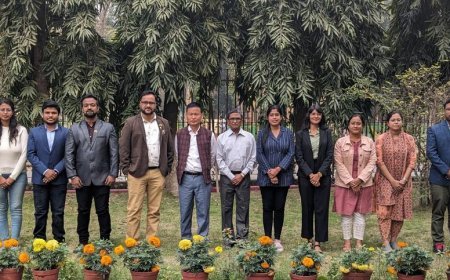ದಿ ಹಿಂದೂ ಸಂಪಾದಕೀಯ “Rule and exception: On a reminder on the fundamentals of bail law” ಬಳಸಲಾದ Idioms and Phrases

ದಿ ಹಿಂದೂ ಸಂಪಾದಕೀಯ “Rule and exception: On a reminder on the fundamentals of bail law” ಬಳಸಲಾದ Idioms and Phrases
The Supreme Court of India’s order granting bail to Delhi Deputy Chief Minister Manish Sisodia is a reminder to judges that they cannot deny bail as a form of punishment. It is also a reminder that the fundamentals of bail law are quite simple. Where a case turns mainly on documentary evidence, bail is the norm, and it is to be denied only if the suspect is a flight risk and is unlikely to appear before the court for trial, or is in a position to influence witnesses and tamper with evidence. The possibility of the trial not beginning anytime soon or that it may be a protracted one is also a circumstance warranting grant of bail. In times when Opposition political leaders are targeted and investigative agencies have no compunction about being seen as branches of the ruling party, the mere act of releasing a person on conditional bail after giving enough time for the completion of the investigation is seen as something extraordinary. In the Delhi liquor policy case, Mr. Sisodia was arrested by the CBI and then the Enforcement Directorate in early 2023. Delhi Chief Minister Arvind Kejriwal’s turn came this year, but he managed to get interim bail in the ED’s case concerning money-laundering charges, while he is still in custody in connection with the CBI’s corruption case.
The order of Justices B.R. Gavai and K.V. Viswanathan has done more than pave the way for Mr. Sisodia’s release after nearly a year-and-a-half in prison. It has foregrounded the principle that the rigours of a bail-denying law, the Prevention of Money Laundering Act in this case, need not stand in the way of a person’s conditional release if there is a prolonged delay in the trial proceedings. It has also brought under focus the tendency among some judges to “play safe”. The Bench has rightly highlighted the tendency among some judges to ignore the principle that bail is the rule, and not the exception. In Mr. Sisodia’s case, based on the ED’s assurance that the trial would be complete within six to eight months, the Court had allowed him to apply for bail again if the trial progresses too slowly or is protracted. This was on October 30, 2023. However, both the trial court and the Delhi High Court paid no heed to the Supreme Court’s pointed reference to the need for speedy trial, but dismissed his application on merits and claimed that any delay in the commencement of the trial was attributable to the various petitions he has filed. Judges should guard against a likely loss of public trust in the judiciary’s ability to protect the liberty of citizens and ensure fair trial without prolonged and needless pre-trial imprisonment.
Pave the way
- Meaning: To create the conditions or circumstances that make something possible.
- Example: "The new policy will pave the way for increased investments in renewable energy."
Foregrounded
- Meaning: To bring something to the forefront or to emphasize its importance.
- Example: "The debate foregrounded the issue of climate change as the most urgent challenge of our time."
Play safe
- Meaning: To avoid risks or to choose a cautious approach.
- Example: "Investors decided to play safe by putting their money in government bonds during the economic downturn."
Bail is the rule, and not the exception
- Meaning: A legal principle that emphasizes that granting bail should be the standard practice, and denying it should only occur in exceptional circumstances.
- Example: "The judge reminded the court that bail is the rule, and not the exception, when deciding on the defendant's request."
Under focus
- Meaning: To be highlighted or emphasized for consideration or attention.
- Example: "The recent scandals have brought the integrity of the organization under focus."
Pay no heed
- Meaning: To ignore or not give attention to something.
- Example: "The management paid no heed to the employees' complaints, leading to widespread dissatisfaction."
Pointed reference
- Meaning: A specific or direct mention, often with an emphasis on its importance.
- Example: "The speaker made a pointed reference to the need for transparency in the company's dealings."
Loss of public trust
- Meaning: A decline in the confidence that the general public has in an institution or individual.
- Example: "The government's handling of the crisis led to a significant loss of public trust."
What's Your Reaction?







































































































































